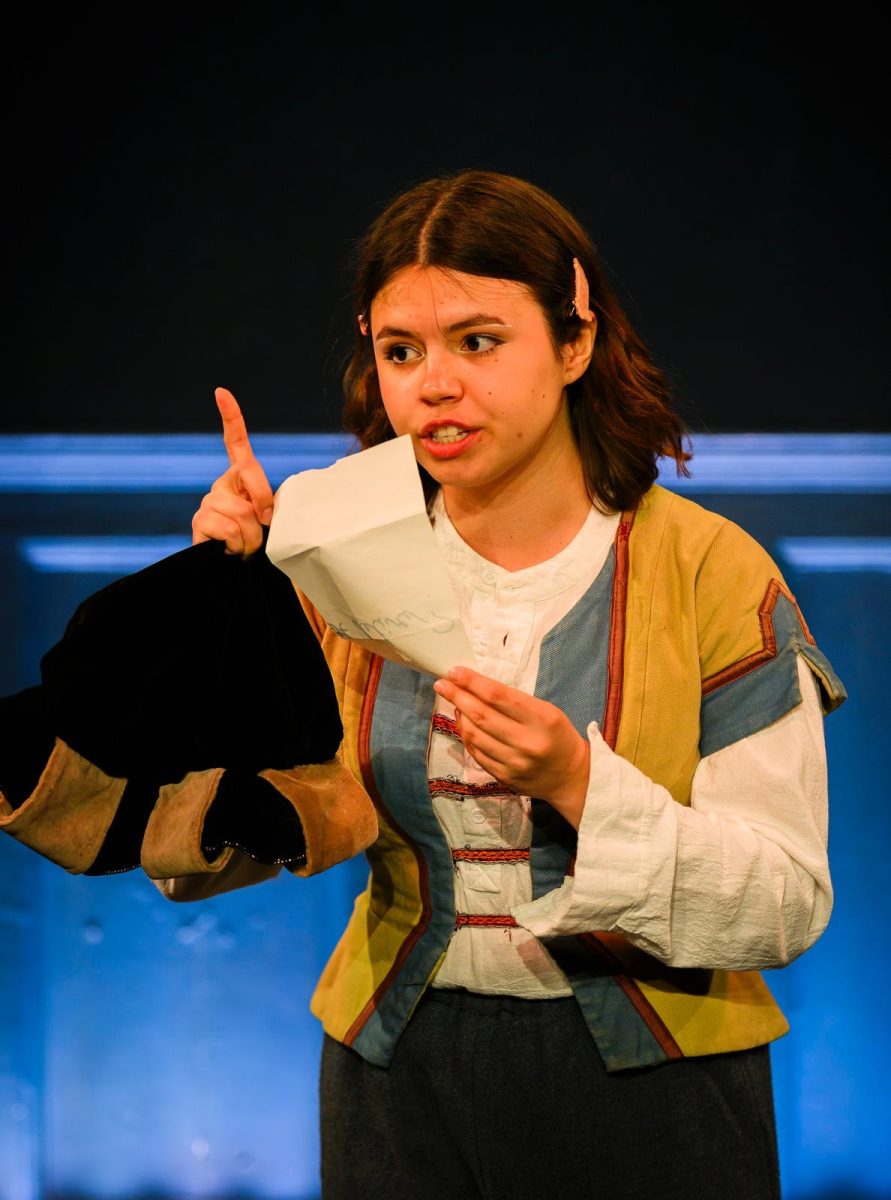
“It’s the same as rushing,” Coco Morgan ’28 said. Since it decided to ban fraternities in 1962, the College has remained a campus free of Greek life. But the impulse to join social communities still remains.
In a whirlwind week of auditions, scores of students sang their hearts out in hopes of joining one of the College’s a cappella groups. The groups then deliberated late into the night about whom they wanted to accept. The administrative body Eph Cappella oversees auditions for the Accidentals, Good Question (GQ), the Ephlats, Ephoria, the Octet, Purple Rain, and the Springstreeters.
Before asking first-years to audition, the groups made a first impression on the campus community by singing at the annual jamboree and Entry Sings. These events allow potential auditionees to scope out the campus a cappella scene before deciding which groups will receive their coveted unix at the Purple Key Fair.
Morgan, a new member of GQ, recalled the enthralling nature of the performances. “It was so special,” she said. “I remember sitting there and getting goosebumps.”
After the initial courting process, there are several days of auditions. Morgan, who sang for GQ and Ephlats, said she felt welcome at the auditions. “You enter the room, and everyone’s smiling at you,” she said.
Vice President of Ephlats Sadie Leonard ’26 recalled their audition experience from 2022 differently. “I think it’s a really intimidating process,” they said. “You walk into a room and there’s like 10 upperclassmen, at least, in front of you on their computers, taking notes on everything that you say.”
Still, the nerve-wracking nature of these interviews helps create a shared experience for group members. “It can be really stressful, but also everyone who’s in a group has gone through the same process as you, so we can sort of connect with each other,” Leonard added.
After the first round of open auditions, each a cappella group deliberates about whom to call back — a process that “can get pretty heated,” according to Ephoria President Nichole Kim ’25. “Everyone in the group has their own opinion… We have to come to a consensus as a group.”
Instead of sending a simple email, groups invite auditionees to callbacks by slipping a physical invite under their dorm doors late at night. Morgan’s callback invite from GQ included an iconic image of High School Musical’s Troy Bolton in front of the callback list with the words “this could be the start of something new” printed on the back.
The callback process allows auditionees to get a better feel of each group’s dynamics.
Sarah Angevine ’28, who joined the Ephlats, said her callbacks involved learning an a cappella arrangement with other auditionees on the spot, a new experience for her. “In my high school, we weren’t big enough to have a choir or a cappella or anything, so I had always been used to singing by myself,” she said. “This was like the first time that I had sung a cappella with a group and harmonized, and it sounded really good.”
Each group carries on its own callback traditions. The Octet, for instance, holds a gathering for auditionees before callbacks. This semester, members sang the “Gulf War Song” at Chapin Hall to prospective members.
“It was a beautiful experience — not one I could put into words, and for good reason,” said Henry Reinke ’28, now a member of the Octet.
Callbacks, however, involve more than simply singing: Each group hosts its callback party on Friday night.
James Johnson-Brown ’25.5, music director of the Octet and co-president of Eph Cappella, said the callback parties are an opportunity for both a cappella members and auditionees to consider social compatibility in addition to musical talent.
“When I went to all the callback parties, I really got to get a sense of what their vibe was as a group,” Angevine said. “It was really fun. Each one felt so different.”
President of Purple Rain Zayneb Moin ’25 described how her group’s parties usually turn into a jam session by the end of the night. “By 11:30 p.m., the instruments came out,” she said.
Following the callback parties, Eph Cappella sends auditionees a form to rank their group preferences. On Saturday, leaders from each a cappella group meet to match auditionees with groups based on their rankings. “Somebody will say, ‘James Johnson-Brown has listed Octet as his first choice. Octet, do you want him?’” Johnson-Brown said, giving an example. “And then we’ll say yes or no.”
“It’s very similar to Greek life here,” Kim said. “You can rank people all you want, but there’s no guarantee you’ll get them.”
Those not called back or selected to join any group should not feel deterred, Johnson-Brown added, since group needs vary by year. “Where people end up [depends on] what the groups need, what the groups want, and what the people who are auditioning want,” he said.
“We’re always exploring ways to make it a more equitable process, make it a more diverse process, make it a process that’s accessible to everybody,” he said.
On Saturday night, each group informs auditionees of their acceptance through sing-ins, in which they go door-to-door performing a song welcoming their new members. A member of the Octet showed up at Reinke’s door with seemingly bad news only to reveal that the first-year had been accepted into the group. “A bunch of guys from the Octet came out from behind the building and started doing a little chant for me,” he said. He continued with the group to pick up more new members at their dorms before having a bonfire on Stone Hill.
Angevine was surprised by two members of the Ephlats rushing into her dorm to usher her outside, where the new members were serenaded with “Thinkin Bout You” by Frank Ocean.
For Springstreeters President Elias Devadoss ’25 sing-in Saturday is a reward for the long, intense week of auditions, after which the competition ceases. “Auditions are competitive,” he said. “Everything else is collaborative.”
When asked about tensions among the groups, members asserted that their priorities lie elsewhere. “That sort of collegiality, that sort of openness and lack of animosity is something we really try to center,” Johnson-Brown said. “We’re not out to get each other. We’re not competing for an audience.”
[Editor’s note: Quinn Casey, Kat Cloonan, Yona Kruger, Shane Stackpole, and Emily Zas, all of whom are members of a cappella groups, are editors on the Record and were not involved in the writing or editing of this article.]







